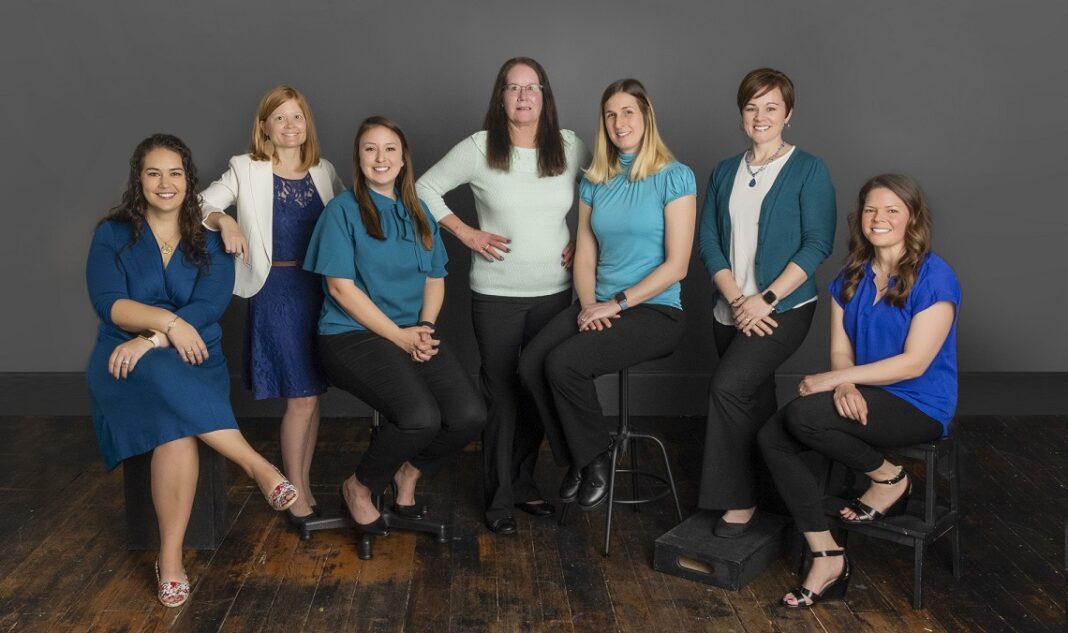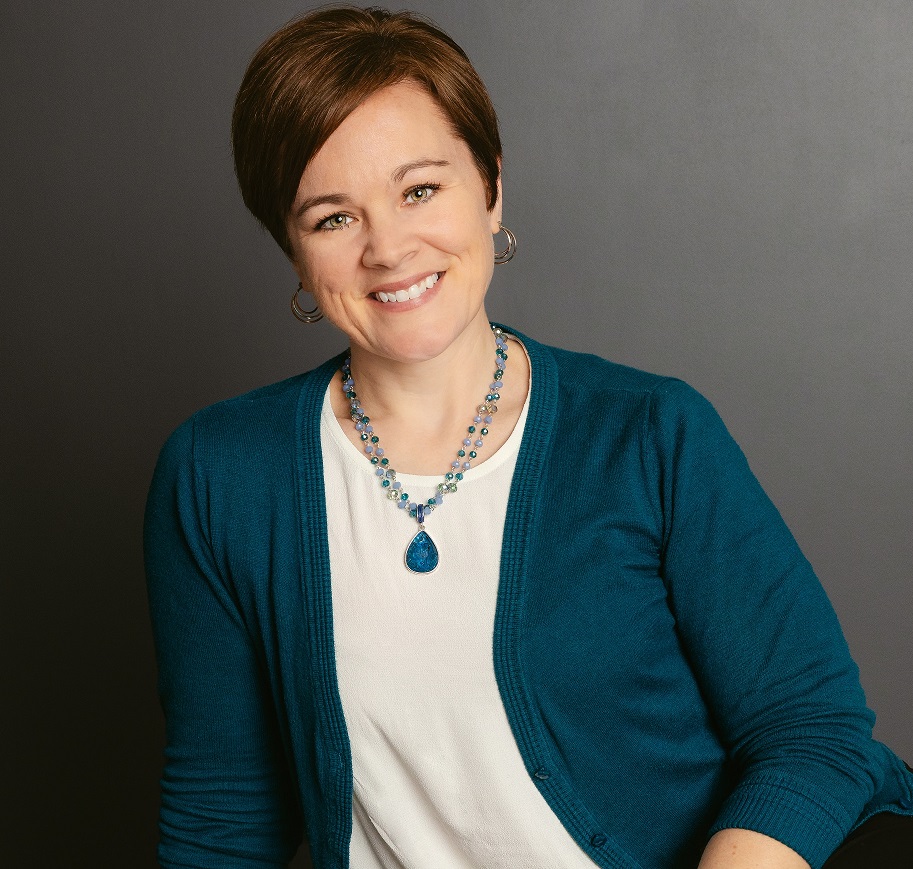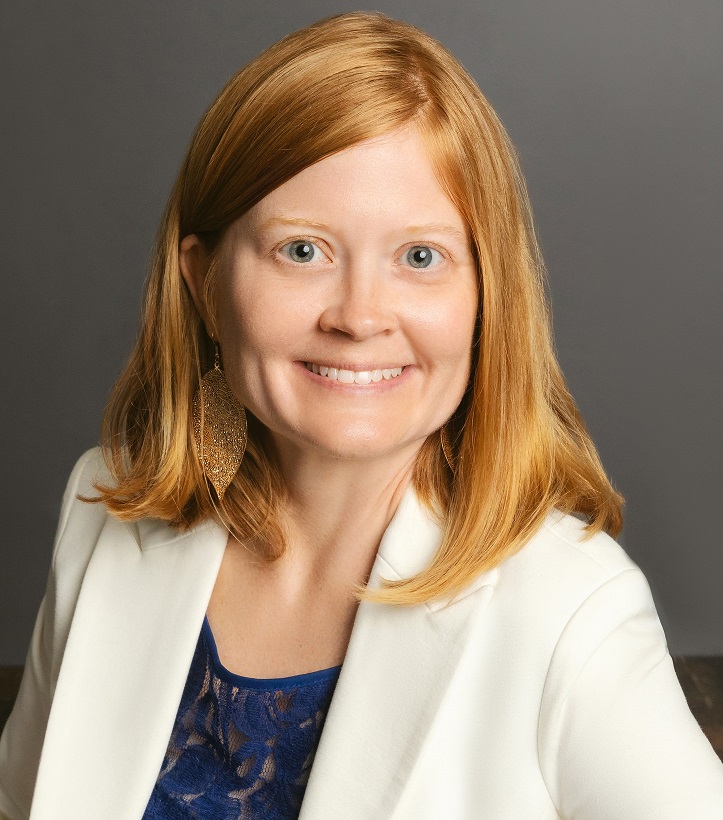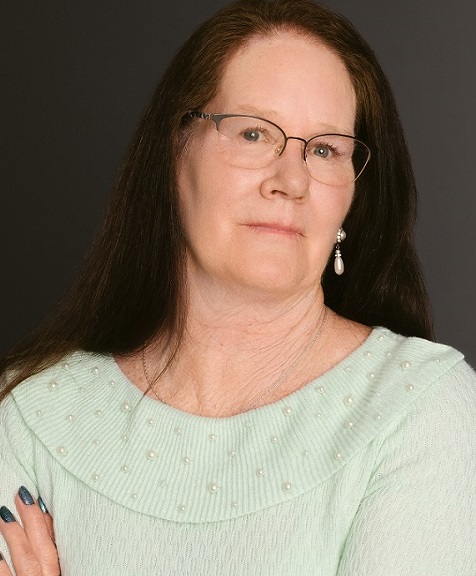Are you feeling ashamed, lost, afraid, alone? We sat down with the team at Hope and Healing Psychotherapy, a local practice serving families and children touched by trauma. Read on to meet the founder, St. Mary’s County native Jennifer Voorhaar, LCSW-C, and find out how the Hope and Healing team can help you retrain your thought process and learn skills for coping.
Tell us about yourself and your background:
Jennifer: I am a St. Mary’s County native and love the small-town family atmosphere of our community. I attended undergraduate school at Frostburg State where I pursued a degree in psychology with hopes of going into the field of forensics. As time went on, the path became a bit clearer and instead of chasing the offender, I sought to help the survivor. I received a Master of Social Work degree from the University of Maryland Baltimore – School of Social Work.
What inspired you to start your practice?
Jennifer: Over the course of my career, I have served survivors of trauma in varying capacities. In the most recent position I held, I was faced with supervising workers who struggled to connect our clients with providers trained in treating trauma. I decided instead of complaining about a problem I would create a solution.
You serve children and families touched by trauma; what other services does your team specialize in?
Jennifer: Our providers have a vast array of experience, knowledge, and expertise. I personally enjoy blending faith-based ideals into wellness in heart, mind, and body. Anastasia has experience working with children, adolescents, and adults with anxiety, depression, and difficulties navigating transitions in life. Meredith has experience in treating all different types of anxiety, from phobias and panic attacks to general anxiety, with all ages. Dr. Thir has experience working with children, adolescents, and their parents, as well as adults, with depression, anxiety, and other emotional/behavioral problems. Kristen has experience in working with teens and adults who are struggling to adjust to life’s challenges and with individuals impacted by depression and anxiety. And Megan has experience in helping adolescents navigate the many difficult transitions they go through. She can assist with multiple areas of significance to adolescents, including self-confidence, identity, body image, learning difficulties, communication difficulties, navigating peer and relationship difficulties, and supporting future aspirations/goals.
“One of the best ways to help someone you know may simply be to ask them how you can help and offer them a listening ear. This can help them recognize that they are not alone in their journey of healing.”
What types of therapies are available?
Jennifer: We provide services to individuals beginning with children as young as 4 years old. We also work with families and couples in navigating the complexities of relationships. We offer traditional talk therapy using cognitive behavioral techniques, play therapy, art therapy, evidenced based trauma modalities (cognitive process therapy post-traumatic stress disorder and trauma-focused cognitive behavioral therapy), as well as faith-based counseling.
What area of therapy are you most passionate about and why?
Meredith: While I appreciate working with all types of people and their issues, I am most passionate about trauma-based therapy. The treatment is typically very structured, which helps because a lot of people like having something concrete to do with their therapy sessions. I have also found significant results when trauma treatment is completed: symptoms decrease dramatically, clarity overall is improved, and self-esteem and self-worth increase as a result. Often other symptoms that people do not think are related to their traumas go away or decrease as well. I often tell my clients if we treat the trauma first, there may not be much leftover to work on, which is a great thing.
Your team offers therapy appointments outside of the office setting – tell us more about meeting patients where they are at:
Anastasia: Sometimes sitting in an office, making direct eye contact with one another, can be very intimidating for some people. When you walk or jog next to each other, it allows for engagement without the pressure of looking at one another. Moving your body, being exposed to the fresh air, are both components to improving your mood. By offering a variety of clinical options, including walk and talk therapy, we allow the client to feel more comfortable in the clinical setting, and realize that therapy isn’t so scary.
What are some signs of mental health disorders the public may not realize?
Megan: There are many different signs of mental health disorders many may or may not realize are signs of a mental health problem, and reactions can be as varied as the person experiencing them. A few of these signs include: insomnia/sleeping too much, extreme irritability/agitation, confusion or difficulty focusing on conversations with others or using words, feeling numb, depression/a numbness/sadness that ‘doesn’t go away’, extreme mood swings, restricting eating/overeating, compulsive behaviors, not wanting to leave home or talk to friends, isolating, not wanting to do activities one used to enjoy, somatic issues (stomach aches, headaches without a known cause), seeing or hearing things others don’t see or hear, having a desire to hurt yourself/others, and not finding meaning in life anymore. These are all signs someone might be experiencing a mental health concern and should reach out.
What should someone do if they think their loved one needs help?
Alison: The recognition and realization that a loved one may need help can be daunting and difficult. It is important to educate yourself on the resources in your area and to remain calm and considerate when you approach them of your concerns. Not everyone is able to recognize their problems. One of the best ways to help someone you know may be simply just by asking them how you can help and offer them a listening ear. This empowers them and by offering your support, it can help them recognize that they are not alone in their journey of healing. You can offer to help find the resources they need by searching for counselors and support groups in your area. You can refer them to crisis lines/text options (calling 211, texting 741741 or calling the local crisis center hotline number at 410-535-1121) and of course offer your number as a number to reach out as well. Of most importance, if you need help and feel that your loved one is at risk to harm themselves or others, please call 911.
Tell us one piece of advice you would give to someone struggling right now who does not know what to do next?
Kristen: Reach out for support! You are not alone in your struggle. Whether it means reaching out to a loved one or reaching out for therapeutic support, help is available. We know that taking that first step in asking for help can be extremely challenging at times, so when you ask for support, you should feel empowered about taking action toward change. The therapeutic setting is a judgement free and supportive environment, so no matter your challenge, concern, or struggle – you can feel comfortable knowing we are ready to help.
What additional resources does Hope and Healing Psychotherapy offer?
Jennifer: In additional to therapeutic services, we also offer social media content for quick reference and education purposes as well as a blog with helpful hints for living well. We are also excited to partner with a local faith-based wellness center, Four Wellness, LLC, in offering not only psychotherapy services but fitness and yoga classes, massage, acupuncture, nutrition coaching and information, bible studies and so much more!
How has the past year dealing with the pandemic altered how you help your clients?
Anastasia: The pandemic has allowed our practice to expand our virtual options and allowed us to get more creative with interventions. With the option for telehealth sessions, clients and clinicians have more flexibility in scheduling and can find time to attend sessions regularly, without having to factor in travel time.
Is there really hope for recovery? What does recovery look like?
Meredith: Absolutely, there is always hope for recovery! So much of that depends on the person’s state of mind and confidence level, but I always believe that it is possible. Recovery is dependent on the person. What recovery looks like to me, may look very different to you. For most people, recovery looks like a significant decrease in the symptoms that first brought them to therapy –depressive thoughts, panic attacks, low self-esteem, problems with interpersonal relationships, etc. A very important part of recovery is acknowledging that symptoms may never go away completely, but your expectations around them have changed and you know how to cope with them better.
What recovery looks like to me, may look very different to you. For most people, recovery looks like a significant decrease in the symptoms that first brought them to therapy
Coping Strategies to Last a Lifetime
Learn more: https://www.hopehealingtherapy.com
Visit: 41650 Courthouse Drive, Ste 301 Leonardtown, Maryland 20650
Contact: [email protected] or (301) 690-8404





















